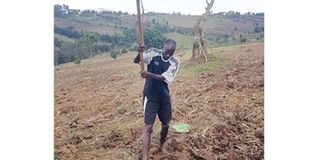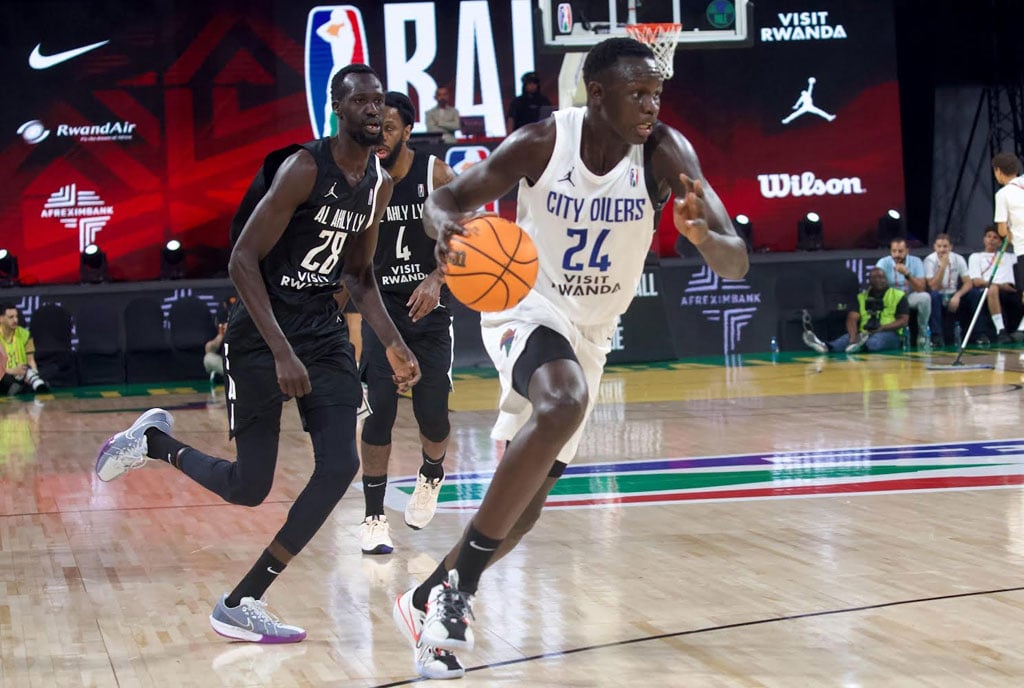In Kapchorwa now, athletes just go digging, says top coach

Shoes to hoes. 3000m steeplechase national record holder Benjamin Kiplagat tends to his farm in Kapchorwa last month. Top is middle distance runner and Tokyo 2020 Olympic qualifier Stella Chesang. COURTESY PHOTO
Large groups of runners jog through paths to a bunch of valleys and hills before relaxing thrice on a normal day in Sebei region district of Kapchorwa.
But is now not business as usual since President Museveni suspended sports activities in the wake of the coronavirus pandemic on March 18. “Athletes would normally train three times a day but, they do it once,” coach Benjamin Njia told this paper from Kapchorwa.
Workouts, runs and jogs in this region have hit the lowest ebb as most runners have since completely stopped wearing their running shoes. Usually, big groups of 20-50 runners hit the road by 5am but not now.
“The morning runs are still there but at individual level or a group of three,” says Njia who handles about 100 runners on a normal training day.
Covid-19 has changed life in Kapchorwa, the home of talents such as 10000m world champion Joshua Cheptegei and 2012 Olympic marathon champion Stephen Kiprotich.
Athlete camps that would house scores are now deserted with a few individuals keeping property there, most village roads are empty and loud echoes can be heard in the hills. This all coincides with the postponement of a list of events by World Athletics mainly the Tokyo 2020 Olympics to next year.
“They are frustrated,” Njia notes, “Some have resorted to farming. They go to dig at 10am and return by 5-6pm.”
Most runners are subsistence farmers growing mainly maize and Irish potatoes, while others are now into rearing small herds of cattle.
With social distancing in effect, Njia of Police Athletics Club, and Global Sports Communication camp coach Dutchman Addy Ruiter are now monitoring athletes via a 100-member WhatsApp group.
“We have advised most to train from their homes as there are no meeting points. We are encouraging long runs and speed endurance only so that when things normalise, we go for speed work,” Ruiter added.
Recently, Police donated supplies such as 200 pieces of masks and 100 litres of hand sanitiser to the athletes.




